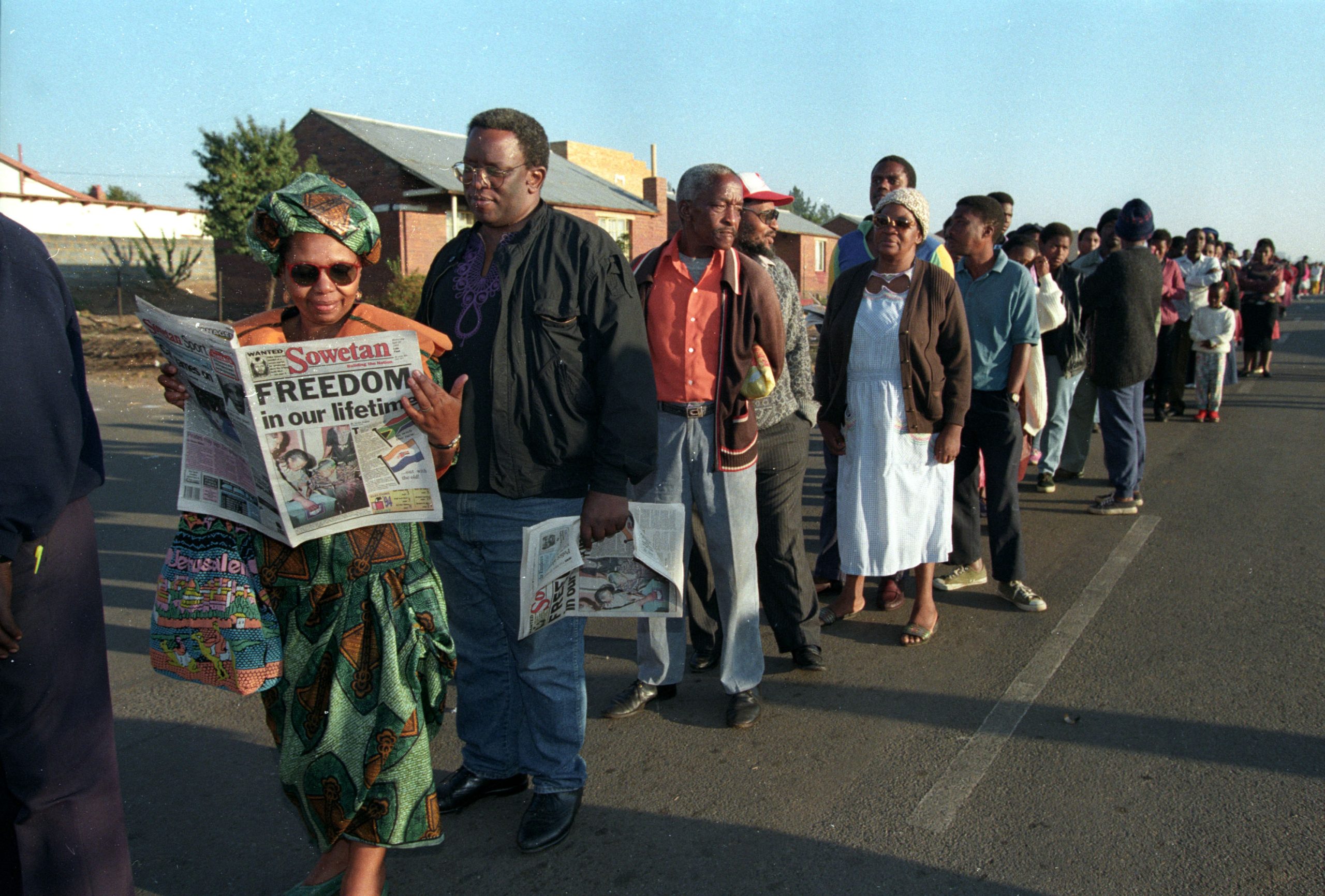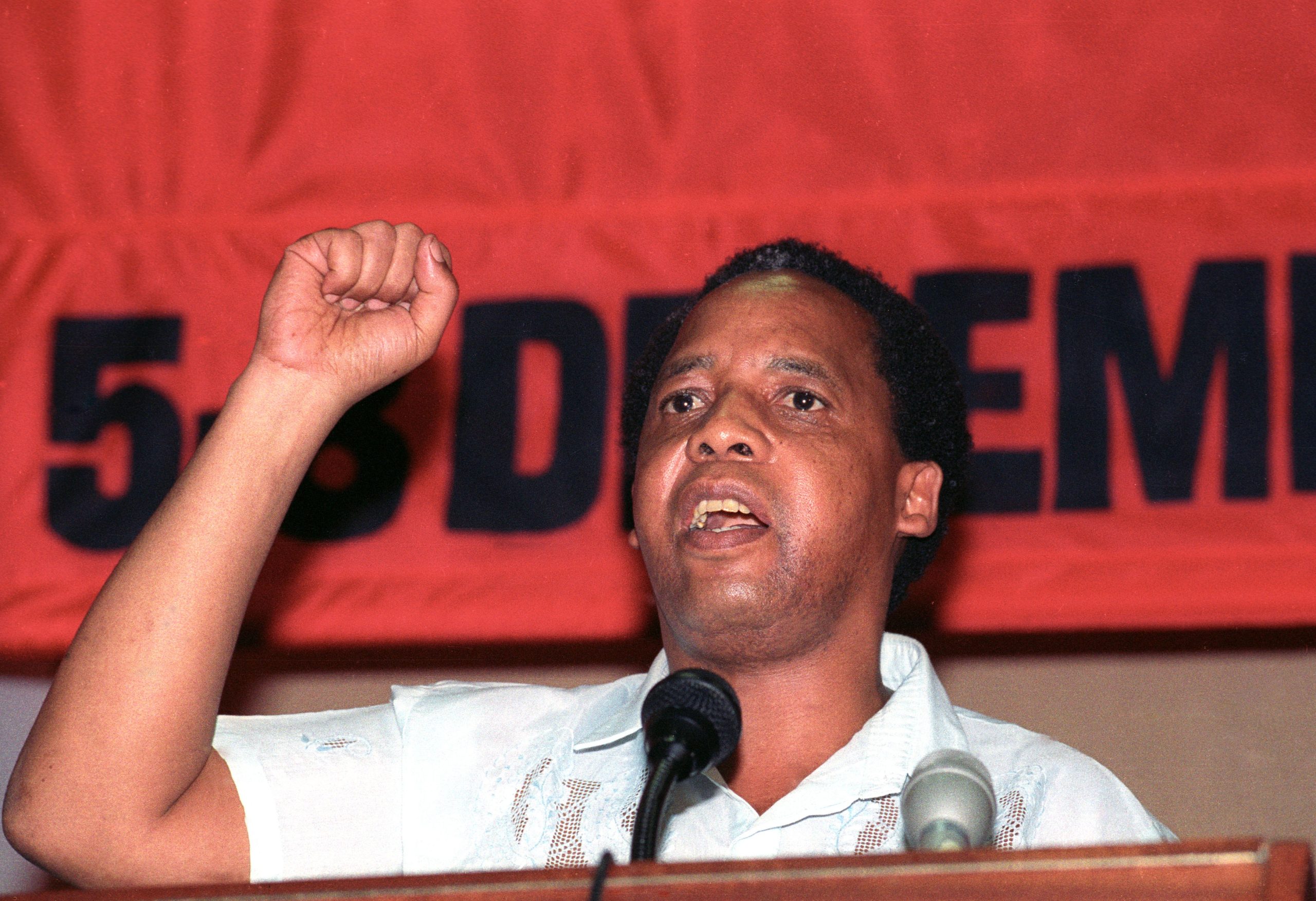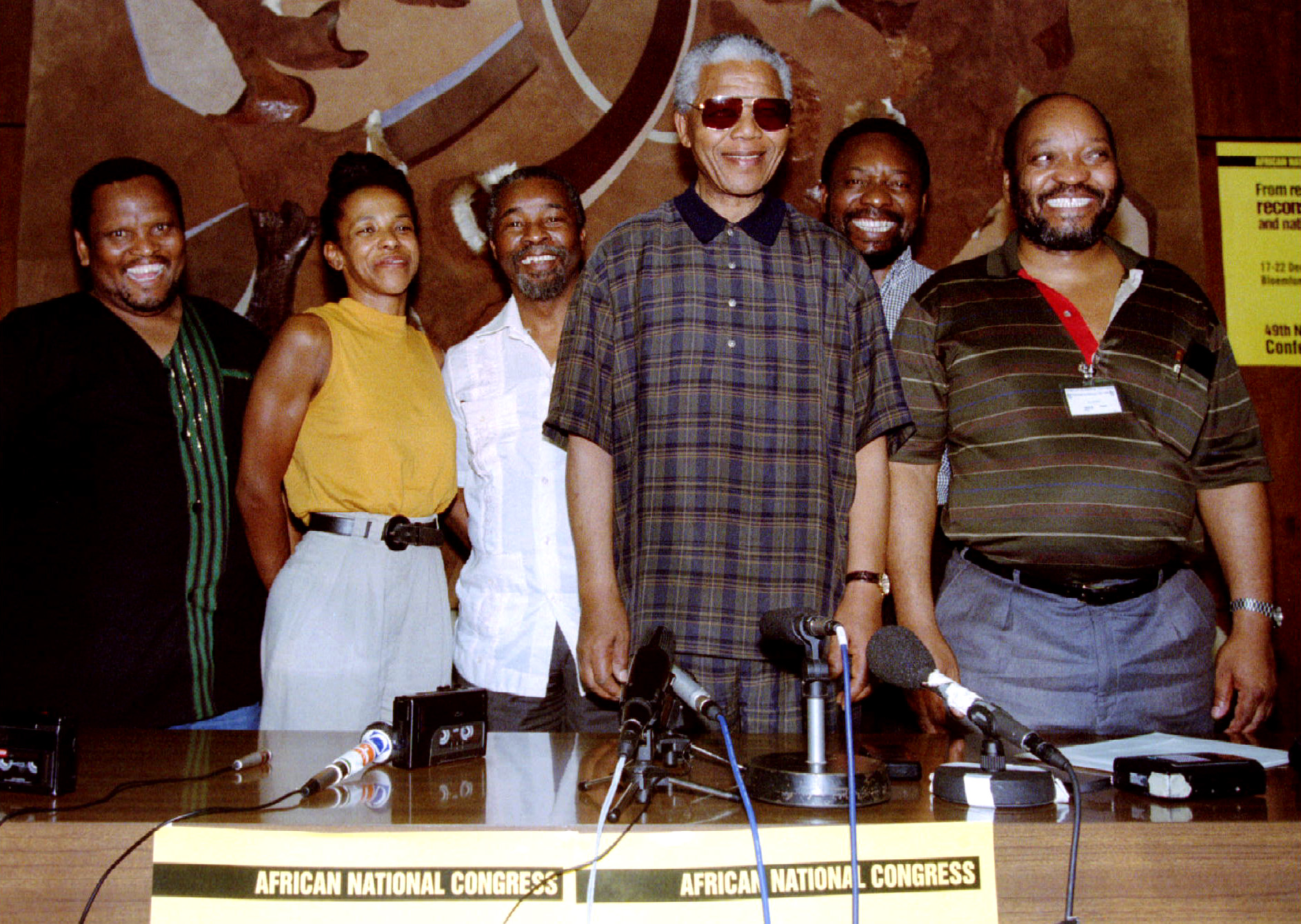Today, one of Africa’s and indeed the world’s most important countries goes to the polls.
Dubbed the most important election since the 1994 general election in which Black South Africans voted for the first time, giving the then Nelson Mandela-led African National Congress (ANC) a 62 percent majority, the 2024 election hugely mirrors 1994 in that 1994 was about political liberation, and 2024 is (hopefully) about economic liberation.
There even exists a more radical school of thought that posits that 1994 was about political liberation-lite – political compromises were reached, economic deals made, so that by the time the vote came, it was more about evolution than revolution. To proponents of this theory, 2024 should deliver complete political and economic liberation, since 30 years into independence, there’s little to show for the Black majority.
Then there are those in the level-headed camp who urge caution. They neither downplay the significance of 2024 – they reason that this election’s most important contribution will be the role it plays in democratic consolidation, a sort of crossing of the rubicon for South Africa as a democratic state, building internal self sustaining checks – but warning that an overestimation of whatever this election can deliver in terms of tangible bread and butter change for the people of South Africa is a recipe for massive disappointment. And this is the crux of the matter.
As Vladimir Lenin and his Bolsheviks sloganeered, ‘‘Peace, land and bread’’, just as Amilcar Cabral warned, ‘‘Always bear in mind that the people are not fighting for ideas, for the things in anyone’s head. They are fighting to win material benefits, to live better and in peace, to see their lives go forward, to guarantee the future of their children…’’, the real test for South Africa in 2024 more than it was in 1994 is whether these democratic processes, this performance and entrenchment of democracy, can and will translate into real life changes and improvements.
Back to the voting line in 1994.
Coming off the back of a protracted global campaign against apartheid, with the revered Nelson Mandela being the face of the ANC, one could be forgiven for imagining that the ANC, at the time the peoples’ glorious liberation movement, should have garnered more than the 62 percent it bagged. After all, there seemed to be unanimity that Nelson Mandela, the selfless leader who had sacrificed 27 years of his life serving time in Robben Island, was a truly unifying factor – at least for the moderates – who should be allowed to usher in the Rainbow Nation as president.
The majority 62 percent agreed, while the minority had their own ideas of who should lead South Africa – 20 percent voting for Mandela’s co-recipient of the Nobel Peace Prize, F.W. de Klerk’s National Party (NP), an apartheid remnant; 10 percent voting for Chief Mangosuthu Buthelezi’s Inkatha Freedom Party (IFP); and the rest of the vote scattering into smithereens, landing in formations such as the great Robert Sobukwe’s Pan Africanist Congress (PAC).

Lifetime,” as she and others of this township south west of
Johannesburg queue to vote at polling station on April 27, 1994.
REUTERS/Corinne Dufka AS
Learning from history, the battle for South Africa’s soul can therefore start to be analysed from those 1994 general election results – the ANC’s 62 percent, the National Party’s 20 percent, the Inkatha Freedom Party’s 10 percent, and the rest 6 to 8 percent – because 1994 is where the battle for that soul played out in a democratic process, a battle that was overshadowed and in some instances compromised by the insistence on the need for a Rainbow Nation.
For Mandela and the ANC, the primary guiding principle was meant to be The Freedom Charter – ‘‘meant to be’’ because, did Mandela and the ANC religiously adhere to The Freedom Charter in 1994 and beyond? For de Klerk and the National Party, standing in the 1994 general election was their way of assuaging post-apartheid anxieties of especially the white minority who had the monopoly over state, capital and industry. For Mangosuthu Buthelezi and the Inkatha Freedom Party, it was complicated, or not, but the bottomline was that the vast interests of the Zulu nation had to be front and centre. For Robert Sobukwe’s political offsprings within the Pan Africanist Congress, it was the old ideological differences with the mother party, the ANC.
In the lead up to the 1994 election, Mandela and the ANC made their compromises during the Congress for a Democratic South Africa (CODESA), which resulted in an interim constitution; Buthelezi – who was a nephew of the Zulu kingdom and served as the kingdom’s traditional prime minister since 1954 – and the Inkatha Freedom Party secured land for the Zulu by enacting legislation which vested all the Zulu nation land in KwaZulu Natal in the Zulu king through the Ingonyama Land Board; de Klerk and the National Party secured Sunset Clause, which allowed the former apartheid civil service to continue working in the new government, among other concessions and arrangements which prevented a hard divorce with apartheid.
And so the Rainbow Nation was ushered in, but was the ANC shortchanged?
Or even more bizarrely, did the ANC shortchange itself?
Only history, the present and the future can tell.
Yet Ronnie Kasrils, an ANC stalwart, believes the ANC was played, but it also played itself.
A year before the historic April 1994 general election, a tragic event occurred, nearly throwing South Africa offrail (or did the event actually throw South Africa offrail, in hindsight?). Chris Thembisile Hani, the one man considered to be as popular as Nelson Mandela (if not more popular than Mandela within certain quarters of the ANC and society in general), was assassinated in cold blood outside his driveway by a white right-winger. Hani’s assassination, and its timing, shook South Africans to the core, because, was someone trying to eliminate those who may not have agreed with whatever compromises were being made at CODESA, or was someone afraid of a government in which Hani held sway, before he succeeded Mandela?

Much as he had founded the ANC’s military wing, the Umkhonto we Sizwe (MK), Mandela had spent most of his time locked up, leaving the likes of Hani, who had joined the MK as fighters, to face apartheid in the frontlines at home and abroad. By the time of his death, Hani had risen to become the MK’s chief of staff, leading one of the ANC’s most important wings. But what made Hani even more potent was the fact that as he led the MK, he simultaneously led the South African Communist Party (SACP) as its General Secretary. From their earliest dalliances (and eventual formation in 1990 of the tripartite alliance between the ANC, the SACP and Congress of South African Trade Unions {COSATU}), the SACP was the ANC’s ideological anchor, a vanguard of sorts, keeping the ANC left-leaning whenever the ANC wobbled. Hani was hence a triple threat; he was extremely popular, he led a fighting force and he was an ideologue of note.
On the other hand, Mandela’s founding of the MK was whispered about, because he now had to become a peace loving global icon, just as his membership of the SACP’s central committee (yes, he was a communist) was similarly whispered about, made public properly only after his death. Hani was therefore everything the real/original Mandela was, and publicly so, and this wasn’t good for some people, maybe a lot of people. But the big question remains, would South Africa have turned out the same had Hani been alive, or would he and others have steered it towards political and economic liberation sooner? What if Hani had succeeded Mandela?
It is these questions, of how far left South Africa and the ANC can and should go, that informed 1994, and have continued informing subsequent elections, and will now inform 2024, 1994’s twin. How was the ANC going to liberate South Africa, The Freedom Charter in hand?
The answer, at least to those who belong to the Chris-Hani-SACP-radical-leftist-ANC-wing, seemed to have been provided by Joe Slovo, Chirs Hani’s predecessor as General Secretary of the SACP. In The South African Working Class and the National Democratic Revolution, a paper written in 1988, Slovo, a central figure during the CODESA talks (he’s credited with the Sunset Clause) and minister in Mandela’s government, argued that the route to liberate South Africa was two-stage, first through a National Democratic Revolution, which would liberate the country economically, followed by socialism. Henceforth, the language within the ANC, even if it didn’t escalate to the mentioning of socialism, was the language of the NDR, the National Democratic Revolution. Mandela’s ascension to power in 1994 was thus viewed through the NDR prism, and subsequent ANC presidencies would continue to articulate the NDR as the political project.
And so for the last 30 years as the ANC has enjoyed power in South Africa, the matrix through which successive ANC governments have been critiqued has been in terms of how far and how much they have advanced the National Democratic Revolution – before society gravitates towards socialism, in Joe Slovo’s thinking, much as this is hardly ever articulated. It is in this contestation, of how far different leaders and leaderships have advanced or stagnated the NDR, and concomitant internal and external political interests, that has fuelled the struggle first for the soul of the ANC, followed by the battle for the soul of South Africa.
After Nelson Mandela hung his boots in 1999, Thabo Mbeki, who had served as Mandela’s deputy since 1994 (alongside FW de Klerk, who exited in 1996), took the reins. An intellectual and ideologue of note – he too was in the central committee of the SACP – Mbeki pushed the NDR the best way he knew how, getting credited with doing the heavy lifting required to build systems and institutions, but failing to achieve mass economic liberation for Blacks. Looking to create a patriotic national bourgeois, Mbeki advanced the Black Economic Empowerment (BEE) program, ending up with a handful Black millionaires, an outcome he himself came to frown upon eventually. Seeing as if Mbeki was too polished and gentle to do the real work of bringing the NDR to fruition, and Mbeki having gotten outsmarted by factions within the ANC,Jacob Zuma, the ANC’s former head of intelligence and Mbeki’s deputy president, took the reins.
Unlike Mbeki, Zuma was rough on the edges, and much as he made attempts to further the National Democratic Revolution through his Radical Economic Transformation (RET) project – which some saw as a push towards challenging white capital while others considered it an alliance of the corrupt – it all came tumbling down under the weight of the wheeler dealing Gupta brothers, suspected of working in cahoots with Zuma to loot South Africa. Zuma was out, his nine years at the helm dubbed ‘the nine wasted years’ by the South African press.
Next came Cyril Ramaphosa, the ANC Secretary General during Mandela’s presidency, who left in a huff after Mbeki’s ascension to power, only returning five years later in 2009 as the party’s deputy president, later serving as Zuma’s deputy president. Having started out as an organiser of mine workers, Ramaphosa had since become a millionaire, alongside Patrice Motsepe, his brother-in-law with whom he found his way into the apogee of corporate South Africa. To capital, Ramaphosa was a safe pair of hands, a blue eyed boy of sorts, and nothing drastic has since happened under him in furthering Joe Slovo’s National Democratic Revolution. To his critics, Ramaphosa is in fact an anti-NDR agent, keen on maintaining the anti-Black status quo.

Mbeki, Zuma and Ramaphosa became the faces of the struggle for the soul of ANC.
Forgetting the urgent task of liberating South Africans from shackles of economic bondage, Mbeki angled for an extension of his term as ANC president, while Zuma, who after ousting Mbeki, seemed to allow elements from outside the ANC, such as the Gupta’s, to hold extensive sway within affairs of the state – they knew in advance who would be appointed minister in what portfolio. Zuma’s other big blunder, assisted by his then deputy, Ramaphosa, was to purge the ANC youth league, at the time led by Julius Malema. The youth league’s sin was demanding that the party should go left and embrace radical economic transformation policies – mainly the nationalisation of mines and expropriating land without compensation.
Zuma may have feared the policies, the politics or both.
Malema was expelled, a verdict read out by Ramaphosa.
The ANC, it seemed, had abandoned Joe Slovo’s two-stage project.
It so happened that as Zuma and Ramaphosa were purging the youth league, mine workers belonging to the National Union of Mineworkers (NUM), the union Ramaphosa had established in his younger days, were striking, demanding higher wages. After tussling with Lonmin (the company owning the mine) for days, state police eventually opened fire, killing 34 mine workers. In a strange twist of fate, the grieving and enraged mine workers had no time for any politician but Julius Malema, the recent ANC expellee. It was while engaging the mine workers that Malema received a clear instruction from them; form a political party. We are tired.
Alongside Floyd Shivambu, a young ideologue who cut his teeth at Chris Hani’s and Joe Slovo’s SACP (Slovo’s National Democratic Revolution was refusing to die), Malema joined forces with the mine workers – the first name on the EFF party list during the 2014 general was that of a mine worker, meaning if the EFF got a single parliamentary slot it would have gone to her – and formed the party. Shivambu, who became Malema’s ideological guide, became deputy leader. Less than a year later, the EFF garnered a million votes during the 2014 election, getting 25 parliamentary seats. South African politics had changed forever. The radical rhetoric of the ANC youth league had now found a proper home. The ANC’s Freedom Charter was adopted.
In the interim, Zuma and Ramaphosa were busy annihilating each other. Ramaphosa eventually had a one up on Zuma, and took the opportunity to purge Zuma’s men from the ANC, including ANC Secretary General Ace Magashule. Zuma was similarly subjected to an appearance before the State Capture Commision – ostensibly set up to investigate him and the Guptas – and upon a falling out with the Commission and absconding, Zuma was jailed for 15 months. Zuma’s arrest resulted in riots especially in KwaZulu Natal, in which 350 deaths were reported. After serving two months, Zuma was granted a remission by Ramaphosa in August 2023.
Cornered, less than six months to the 2024 elections, Zuma pulled the rug under the ANC by registering the Umkhonto we Sizwe Party, making away with the name of the ANC’s military wing. And much as the ANC tried fighting the move through court cases, Zuma sailed through. The MK name was gone, and with it a section of the ANC. All eyes were on Zuma and the MK.
It all reads like a badly written script. A liberation movement squanders opportunities to change the lives of its people at every turn, while its leaders turn against each other, fighting for power for either its own sake or for the sake of their cronies, handlers and sponsors. The ANC, currently at its weakest since 1994 – it got 66.4 percent in 1999, 69.7 percent in 2004, 65.9 percent in 2009, 62.1 in 2014 and 57.5 percent in 2019 – is grappling with the danger of polling below 50 percent, unsure if it will retain power nationally and in Gauteng, the province hosting the country’s seat of power. Likelihoods of a razor-thin win, or a coalition, appear high.
On the ballot paper, voters will equally encounter the Democratic Alliance (DA), the main opposition party that is predominantly white, alongside the likes of Build One South Africa (BOSA) – started by Mmusi Maimane, a former DA candidate for president; Rise Mzansi, a new formation fronted by former journalist Songezo Sibi; ActionSA, fronted by former Johannesburg mayor and DA frontman Herman Mashaba, all promising to deliver the opposite of the ANC, the EFF, MK and other ANC breakways. It is indeed a Rainbow Nation on the ballot.
In 2024, South Africa is officially back to 1994.
However, there is no Nelson Mandela and Chris Hani is long dead.
Will things pan out differently?



